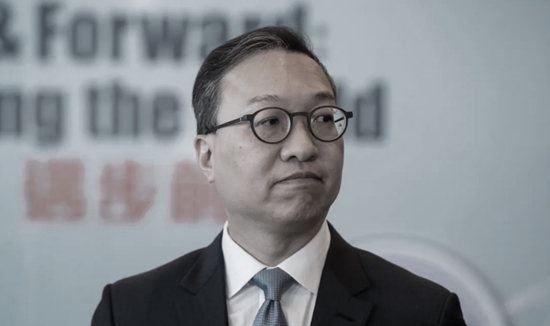
Is it treason? Insurrection? Espionage? Sabotage? External interference? Quibbling?
Take your pick. It’s all arbitrary anyway, regardless of the mountains of specious pretense of fealty to “justice” and “the rule of law” with which the Chinese-Hong Kong state seeks to bury Hongkongers.
The Guardian reports (March 25, 2024):
Hong Kong’s justice minister has warned that posting and sharing criticism of the city’s newly enacted national security law could be in breach of the legislation [Hong Kong’s new National Security Law], which lays down harsh penalties for sedition.
Secretary for justice Paul Lam said in a televised interview on Sunday that a person might commit an offence if they reposted online critical statements issued by foreign countries and persons overseas, depending on their “intention and purpose”.
“An extreme scenario could be that the person posted [the statements] online because they strongly agreed with it, and they added some comments, made additional remarks, purely for the purpose of inciting other residents’ hatred against the [Hong Kong] and central governments,” Lam said.
“In that case of course there is a risk and a chance [of breaching the law].”
Why does Lam refer to only “a risk and a chance” that a Hong Kong blogger would be violating the law rather than a certainty that he would be violating it if, as determined by Lam et al., the scofflaw indeed echoes a foreign-born criticism of the National Security Law “purely” in order to incite hatred of the evil Chinese-Hong Kong government and not also to fulfill a blogging quota or something?
Part of the explanation may simply be that the evil Lam (shown above) was speaking extemporaneously and therefore imprecisely. On the other hand, arbitrary law is arbitrary. The arbiters of its dispensing don’t necessarily feel obliged to apply it in a systematically evenhanded and symmetric way against all violators. Maybe, acting on a whim, a Chinese Communist Party official will let a minnow go for now and see what he does next; just make a note, keep an eye on him. Maybe after also giving him a stern talking to, maybe not.
Of course, you can’t rely on whims or the chance that the overlord who notices your treacherous comments may be busy going after somebody else at the moment. As a Hongkonger, the more often you offer or endorse criticism of the state, the greater your risk, and the easier it will be for your accuser to come up with “evidence” against you.
Hong Kong security chief Chris Tang said in the same interview that additional evidence such as “what you keep at home and what other acts you have done” would have to be collected to facilitate prosecution.
“As I often said, if you breached the law, I will definitely find evidence against you,” Tang said.
Tang will find evidence—or will concoct it. The Article 23 legislation is itself is a concoction, not objectively based on any relevant facts, such as the fact that outlawing criticism of the state and imprisoning and torturing you for years for criticizing the state is unjust. Lies based on lies based on lies do not yield truth.





